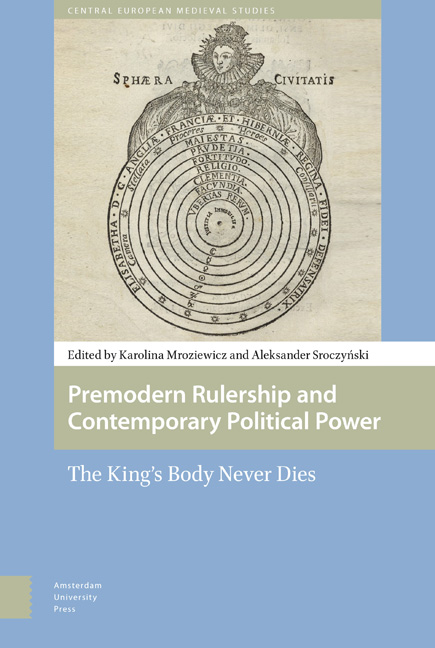The Life and Afterlife of Pontifical Indiscretions in the Renaissance
Published online by Cambridge University Press: 24 December 2020
Summary
Among the nepotistic Holy Fathers in Renaissance Rome, Pope Alexander VI is perhaps the most ill-famed. He was responsible for renewing the virginity of his own daughter, Lucrezia Borgia, by papal bull no fewer than three times and, in doing so, associated the fruit of his physical body with the mystical body of the church, of which he had recently become the head. Alexander VI, like many other Renaissance popes, did not reject his earthly life and transform his physical self into the body of an office-holder but rather, with help of his children and other relatives, did everything possible to use the position for his own political advantage.
In this paper we will examine the lives of the popes who reigned during the century between the fall of Constantinople (1453) and the end of the Council of Trent (1563). These popes – including Pius II (1458-1464), Paul II (1464-1471), Sixtus IV (1471-1484), Innocent VIII (1484-1492), Alexander VI (1492-1503), Pius III (1503), Julius II (1503-1513), Clemens VII (1523-1534), Paul III (1534-1549), and Gregory XIII (1572-1585) – each acted as spiritual head of the church, but their position was not unlike that of a secular prince. As Ernst Kantorowicz has noted, during the reign of these popes ‘the hierarchical apparatus of the Roman church tended to become the perfect prototype of an absolute and rational monarchy on a mystical basis, while at the same time the State showed increasingly a tendency to become a quasi-church or a mystical corporation on a rational basis.’ The common goal shared by these Holy Fathers was to transform the Papal State into a feudal principality by: 1) giving high ecclesiastical status – and thus essential political power – to members of their own families, and; 2) making the throne of Saint Peter almost heritable from pope-fathers and/or pope-uncles to cardinal-sons and/or cardinal-nephews.
During this period, the re-establishment of the pope's temporary power was accomplished and, in the eyes of certain cardinals and princes, it was even exceeded in a negative way. According to Paolo Prodi, the idea of the synod as ‘advisory board’ to the Holy Father had become politically imponderable by the end of the fifteenth century, having been transformed into an assembly where cardinals were exchanging favours and buying positions from both the pope and from one another.
- Type
- Chapter
- Information
- Premodern Rulership and Contemporary Political PowerThe King's Body Never Dies, pp. 193 - 216Publisher: Amsterdam University PressPrint publication year: 2017



